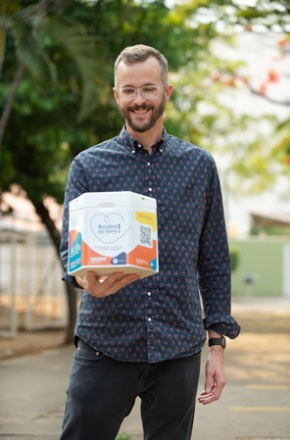Oxitec Ltd is building a healthy, sustainable and equitable future for humans on this planet by forging a new category of safe, sustainable, highly effective biological pest control solutions.


"Oxitec is committed to deliver solutions that enable sustainable food production for a growing population on this changing planet, which is needed now more than ever to protect global food security. More chemical pesticides aren’t the answer. We’re focused on stopping arthropod pests on their tracks by translating Oxitec’s proven, biological technology platform into Friendly™ solutions that offer a new level of impact, without harming the environment."
Grey Frandsen, CEO, Oxitec
"We’re excited to be part of this collaborative effort to develop the world’s most sustainable tick management solution. I’m delighted that the results of our early scientific feasibility program have demonstrated the promise of our Friendly™ platform, to deliver impact against the world’s most devastating tick pest of cattle. We’re grateful for the support of the Bill & Melinda Gates Foundation, which will enable us to – in collaboration with the globally respected Roslin Institute – start to build an urgently needed Friendly™ tick solution to support livestock farmers in Sub-Saharan Africa and beyond."
Kelly Matzen, Chief Technology Officer, Oxitec
Roslin Innovation Centre
University of Edinburgh
Easter Bush Campus
Midlothian, EH25 9RG
AND
71 Innovation Drive
Milton Park
Abingdon, OX14 4RQ
E: info@oxitec.com T: +44 1235 832393
For media enquiries, call +1 202 792 3080 or email press@oxitec.com